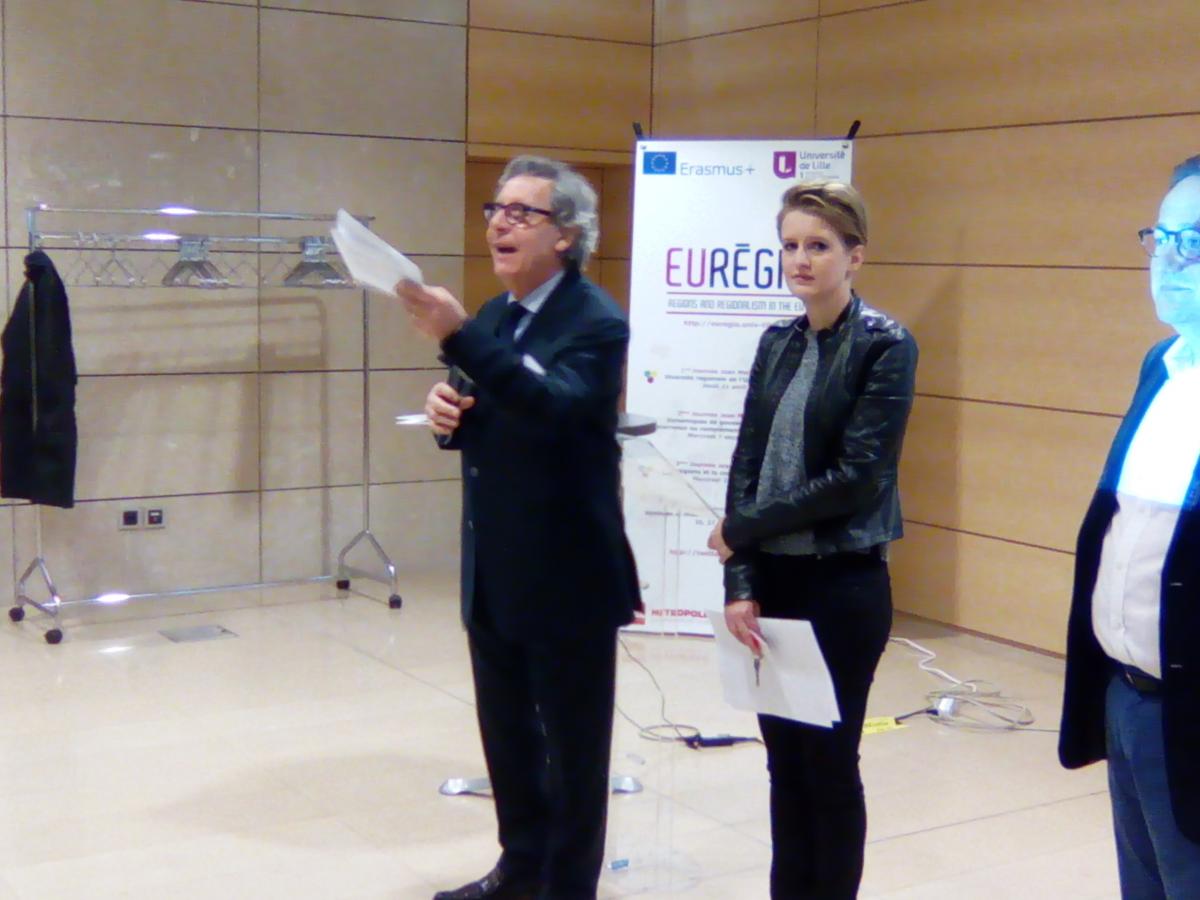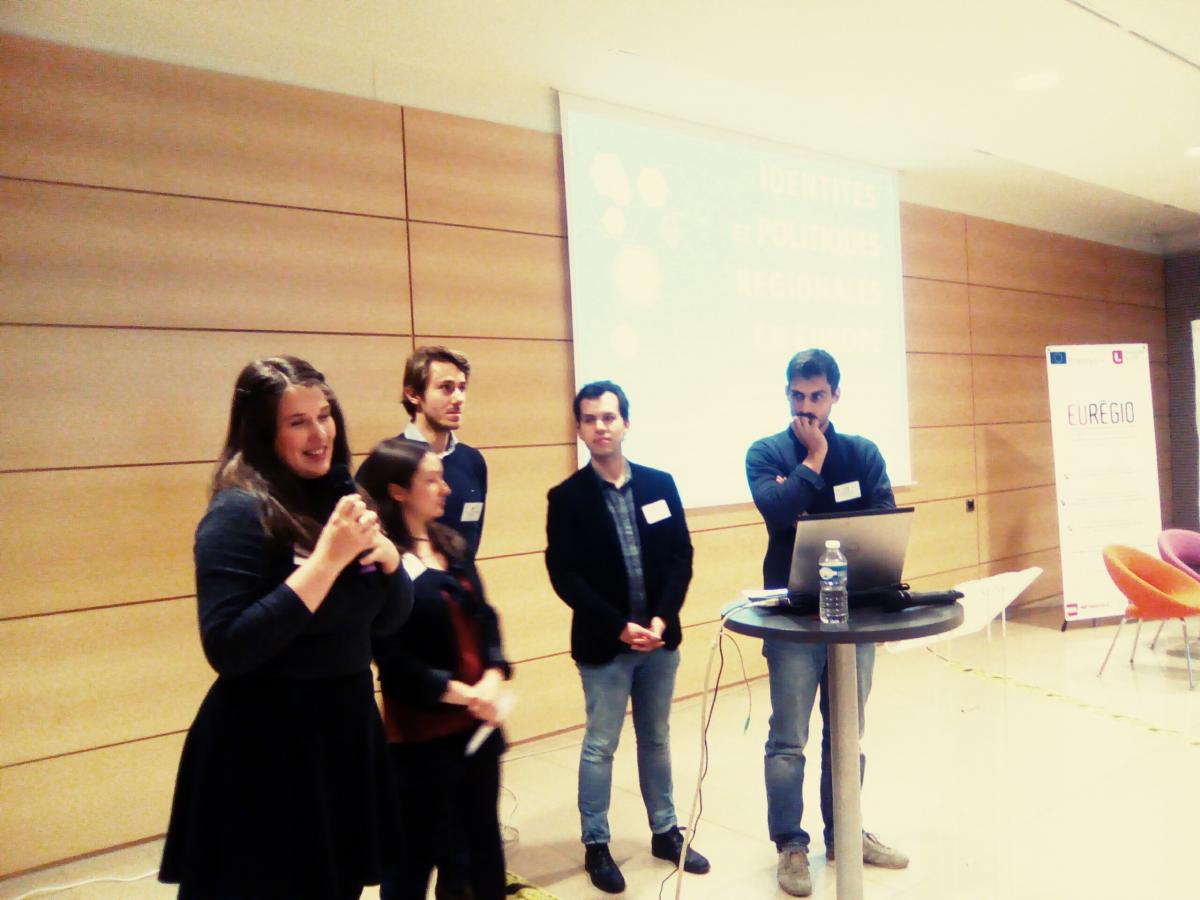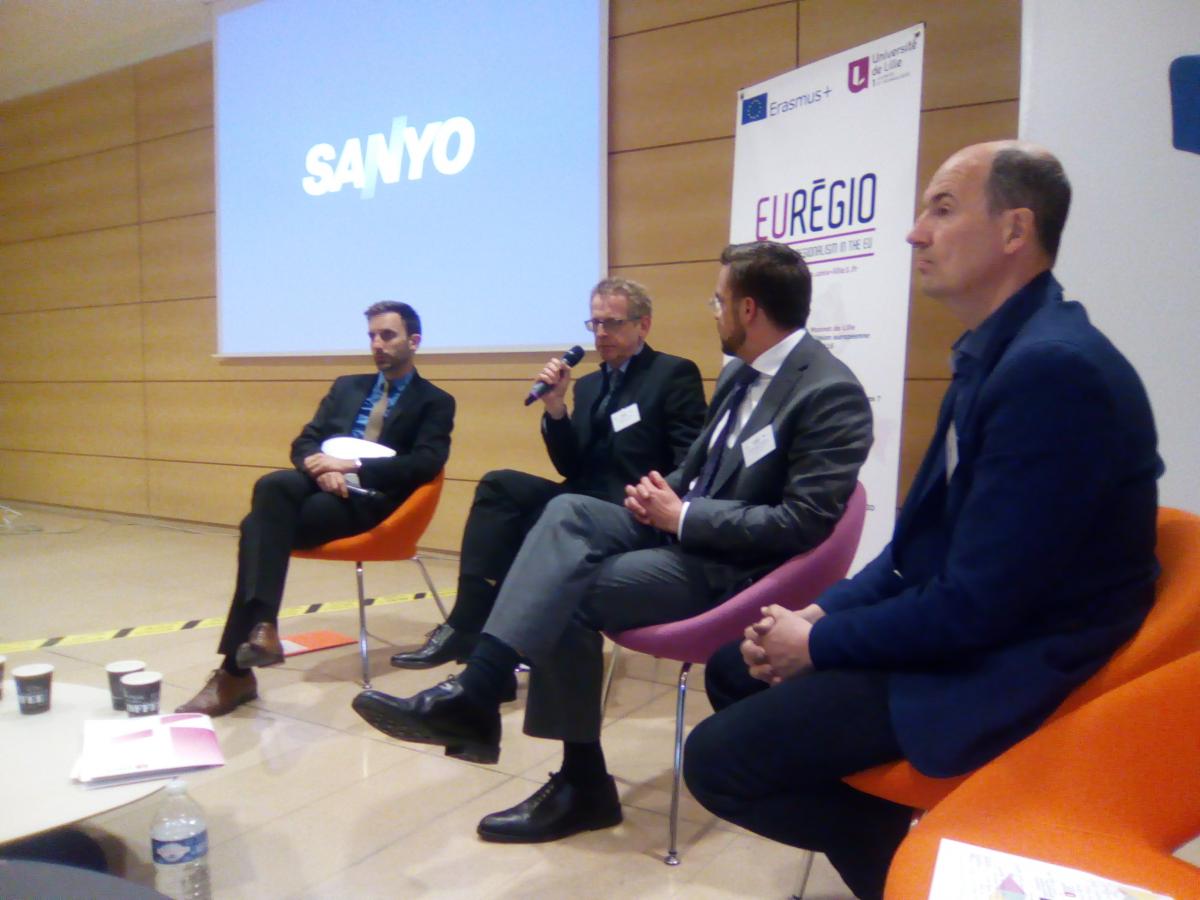Regions and territorial cooperation in the European Union
3rd Lille Jean Monnet Workshop (2JML)
► Wednesday 26th April 2017
The territorial cooperation mechanisms developed in the context of the European Union (interregional networks, cross-border, regional representation): what is the added value of these schemes for the development of regions and regionalism?
PROGRAMME
(click to download the programme in .pdf)
Morning 9am - 12:30am
-
Oppening by Gilles Pargneaux, Member of the European Parlement and Elizabeth Boulet, Regional Advisor, Hauts-de-France

-
« The cooperation of Russian regions with the EU »
Elena Alexeeva (Voronezh State University, Russie), Project manager of the Jean Monnet project PolIDEU
(Click to see presentation)
This conference deals with the internationalisation of training and education for the development of the image of the Voronezh region. The Voronezh region is in the center of the European part of Russia (Central Black Earth Region). With its favorable geographical situation, its area (52200 km2) and its population (approximately 2400000 inhabitants), the Voronezh region is one of the main economic centres of the country. The main economic activities of the region represent a wide range of products: industrial production, agriculture, agri-food, aircraft, rocket motors, mineral fertilisers, communications, trade. According to several economic studies, the region has a great potential to develop thanks to its links with other regions of Russia but also through its relations with Europe, China and the United through joint projects. The administrative capital of the region is the city of Voronezh (1014610 inhabitants).
It is essential to ensure the training of qualified specialists for sustainable economic development. This is why we analyze the interaction between the economic and social development of the region and the potential for higher education with the example of Voronezh State University. Today, there are more than 30 higher education institutions in Voronezh where more than 130,000 students follow the different training courses. One of the most renowned institutions of higher education in the central Black Earth Region is the State University of Voronezh (22,000 students), which enjoys an excellent reputation thanks to its training and dynamic student life, to its many partnerships and the know-how of teachers and researchers. It is actively involved in international programmes to improve the higher education and research system. It has successfully co-operated with numerous European and American foundations such as UNESCO, TEMPUS, ERASMUS, TACIS, IREX, DAAD, Open Society Institute, as well as with various universities in France, Germany, Spain, Czech Republic, Estonia, China and other countries. The experience of the international cooperation of the Voronezh State University and the added value of its international and European programmes is thoroughly exposed in the intervention.
-
« Regional paradiplomacy in the Mediterranean area »
Manuel Duran (University of Antwerp)
(Click to see presentation)
The Mediterranean region has witnessed a growing international activity by a number of its sub-state units, especially in France, Italy and Spain. Successive surges of devolution in all three countries have transformed them into decentralized and/or federal countries, in which sub-state entities’ competences have increased greatly, including in the international and diplomatic realms. These activities are labelled “paradiplomacy”, being the mechanism of representation, communication and socialisation through which these sub-state entities conduct their business, stimulate regional cooperation in the Mediterrranean and advance their own international position.
-
Discussion and debate
Afternoon 2:30pm - 17:30pm
-
Presentation of the Jean Monnet student workshop "Regional identities and policies in Europe"
(Click to see presentation)
The University Jean Monnet Workshop of Lille works on the question of diversity of regions as well as cultural and linguistic minorities in the European Union.
The European EURéGIO project commissioned the workshop as part of the Jean Monnet Erasmus + programme. The main objective is to establish the diversity of regions and the way they are considered by member states. Correspondingly, the workshop studies the devolution process for those territories and the interaction between regions and cultural/linguistic minorities. How are the latter handled, recognized, integrated regionally and with what level of devolution? Various typologies are exposed and illustrate the diversity of existing situations in the Union. Sequentially, in accordance to the principal theme of the Master in which the students are invested, the workshop focuses also on the way those problematic impact territorial planning. This approach will be further developed through multiple study cases. Finally, the subject is broadened with the analyse of the role played by the European Union as well as other form of paradiplomacy in those processes.

-
Round table :
Regional cooperation in the European Union : issues and challenges in current EU
Chair :
Thomas Beaufils, director of the Dutch-French Higher Education and Research network (click to see presentation)
Intervenants :
Mathieu Mori, Secretary general of the Assembly of European Regions (click to see presentation)
Pierre Gérard, Officer, Brussels-Capital Region, department of international relations (click to see presentation)
Matthieu Hornung, political adviser, Committee of the Regions of the European Union

Closing of the day
PLACE :
Conseil régional Hauts-de-France
151 avenue du Président Hoover
59000 LILLE
Please contact Elsa Delfort for further information



